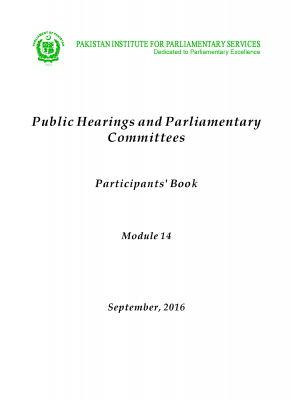
A strong, active committee system is an asset in any functioning parliamentary democracy. A comprehensive system of parliamentary committees provides greater accountability by making the policy and administrative functions of government more open and accountable, giving the people more and better access to parliamentary processes and ensuring Members of Parliament have more involvement in and […]
Download (67.50 MB)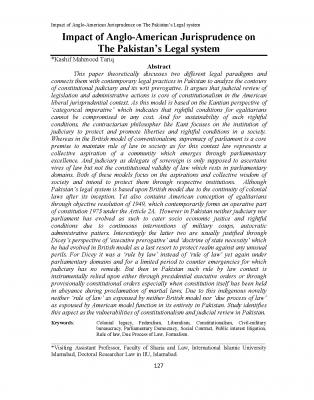
This paper theoretically discusses two different legal paradigms and connects them with contemporary legal practices in Pakistan to analyze the contours of constitutional judiciary and its writ prerogative. It argues that judicial review of legislation and administrative actions is core of constitutionalism in the American liberal jurisprudential context. As this model is based on the […]
Download (83.35 KB)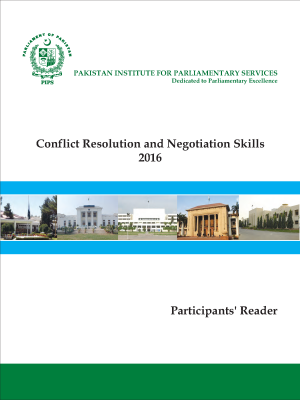
More importantly, Members of Parliament are conflict managers in their constituency, which are always expected to promote “unity in diversity,” as political leaders to maintain a tolerant and peaceful society. Their role as Members of Parliament of a federation all the more expects them to be effective negotiators to build agreements and consensus in day […]
Download (793.73 KB)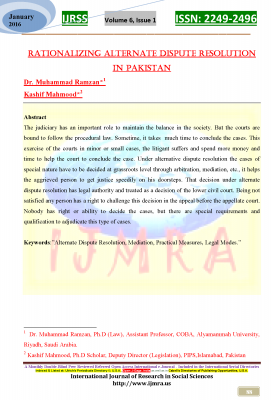
The judiciary has an important role to maintain the balance in the society. But the courts are bound to follow the procedural law. Sometime, it takes much time to conclude the cases. This exercise of the courts in minor or small cases, the litigant suffers and spend more money and time to help the court […]
Download (389.28 KB)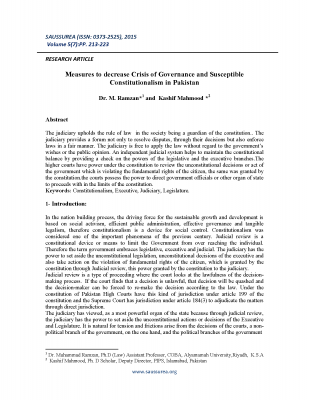
Abstract The judiciary upholds the rule of law in the society being a guardian of the constitution.. The judiciary provides a forum not only to resolve disputes, through their decisions but also enforce laws in a fair manner. The judiciary is free to apply the law without regard to the government’s wishes or the public […]
Download (320.27 KB)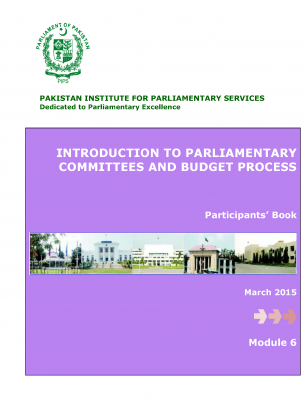
Budgeting is the process of creating a plan to spend your money. Budget Planning helps to determine in advance the expenses and how to fund them. With reference to government the budget is its most important economic policy tool and provides a comprehensive statement of the priorities of a nation. There is also an obligation […]
Download (1.19 MB)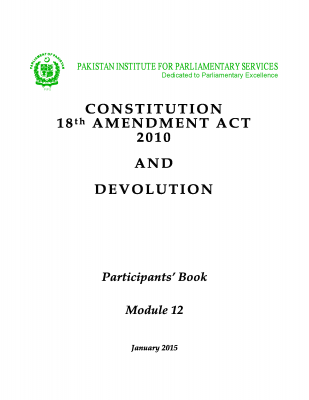
The unanimous passage of 18th Constitutional Amendment Bill by the Parliament of Pakistan has moved Pakistan away from a presidential form of government susceptible to military coups, say the Speaker of the National true manifestation of evolving stronger tradition of parliamentary democracy in the country. President, Asif Ali Zardari signed the 18th Constitutional Amendment Bill […]
Download (13.04 MB)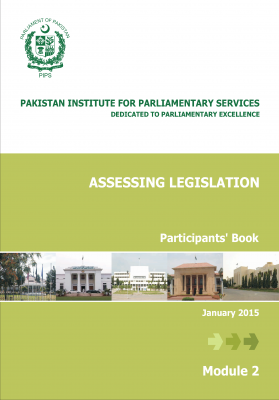
Lawmaking is the process of making and enacting laws. It constitutes a long and often complex process including phases of very different nature such as policy making, impact assessments, the concrete law drafting, consultation procedures, questions of publication and accessibility, as well as more specific issues like possible alternatives to regulation and the roles of […]
Download (43.52 MB)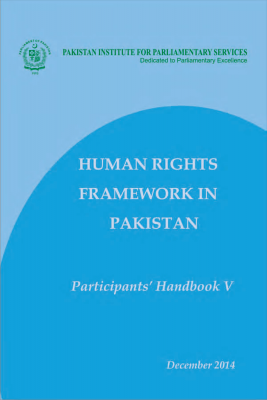
Task of Parliaments as well as governments has become more complex as populations grew and maintenance of a sustainable society with appropriate provision of food, shelter, health, education and a secure environment become arduous. Members of the Parliament are expected to play the key role in provision of above-mentioned necessities and liberate people from the […]
Download (118.92 MB)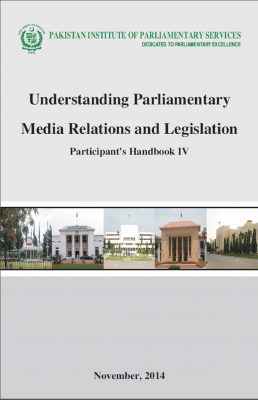
We are pleased to share this handbook on Understanding Parliament-Media relations and legislation 2014 at National workshop on November 27-29, 2014 at the Pakistan Institute for Parliamentary Services. It extensively focuses on MPs orientation with regard to dynamics of Pakistan media and norms of quality legislation and good governance and how MPs dynamic role can […]
Download (17.22 MB)